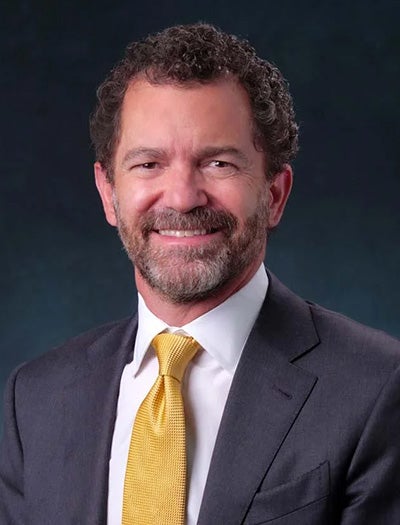
CU EthicsLine is not a substitute and should not be used to fulfill mandatory reporting requirements established by law or university policy. Depending on the nature of the issue, mandatory reporters should report directly to the office or agency designated by university policy or applicable law.
The Board of Regents has established the CU EthicsLine resource, hosted on the EthicsPoint platform by an independent third-party (NAVEX), to provide a simple, anonymous way to report concerns or suspected misconduct. Retaliation against those who report in good faith is prohibited.
MAKE A REPORT
You may submit a report by using one of the following methods:
OR
Via telephone, by dialing 800-677-5590 (in the U.S. and Canada)
Para presenter un informe por teléfono, llame al 800-677-5590
FOLLOW UP ON A REPORT
After filing a report, you are encouraged to follow up regularly to check the status or in case more information is needed.
FOLLOW UP ON REPORTYou will need the report key given to you when you filed your report.
MESSAGE FROM CU PRESIDENT TODD SALIMAN

Welcome to the University of Colorado, a community of approximately 67,000 students and 37,000 employees on four campuses in Aurora, Boulder, Colorado Springs and Denver. As Colorado’s leading public academic and research institution, earning and maintaining public trust is vital. Students, faculty, staff, alumni, donors and all Coloradans have a vested interest in CU’s success, which we strive to achieve with integrity, accountability, and transparency. Our codes of conduct, laws, and policies reflect this.
Should problems arise, however, we want faculty and staff to be comfortable communicating their concerns, asking questions, and reporting troubling situations. The CU EthicsLine was created for such instances, and I encourage you to use this valuable resource when needed.
Thank you for helping CU maintain high standards, deliver on our mission, and earn the public’s trust.
REPORTING CONCERNS & QUESTIONS
What should you do after submitting a report?
After you have completed your report, you will be given a report key assigned by the EthicsPoint system and asked to set up a personal password. Please save this report key and password. If the university needs to communicate with you, messages will be posted to the report and accessed by you using this report key. You are encouraged to return to the EthicsPoint website within five to seven business days and periodically to view and respond to any follow-up questions or comments. By doing this, the university can communicate with you while your identity remains protected.
How will the university use my report?
Reports submitted through CU EthicsLine are independently reviewed by system administrators in the university's Internal Audit department, who engage responsible university official(s) to investigate concerns and take action as appropriate. Reports will be looked into as quickly and discreetly as possible. If you file a report anonymously, provide as much information as possible and be sure to check back in using your report key and password. Those responsible for reviewing your concern may have questions for you or need additional information to investigate the matter thoroughly. You will be notified in the system when the review is complete. However, due to confidentiality requirements, you may not necessarily be informed about the specific action taken to address your issue or concern.
What if I am concerned that I will be retaliated against for speaking up?
Specifically, Colorado law provides that an appointing authority or supervisor may not initiate or administer any disciplinary action against a public employee (C.R.S. Title 24, Art. 50.5 ) or private contractor (C.R.S. Title 24, Art. 114 ) for disclosing information unless the reporting individual knows the information is false (or the disclosure is made with disregard for the truth or falsity of the information) or the information disclosed is confidential under other applicable law.
Several federal laws and programs also provide "whistleblower protection" to individuals who report concerns, including but not limited to protections for those who disclose information they reasonably believe to be evidence of gross mismanagement of a federal grant or contract, waste of federal funds, or similar concerns.
Not Sure If You Want to File a Report?
Do you have concerns, but you are not sure if you should file a CU EthicsLine report? Maybe you would like to talk to someone first to determine your options or find out what resources are available are available to you. There is a way to find that help! Call or email one of the individuals listed below, and you will be directed to the resources you need.
CU Boulder
Catherine Oja, Director of Integrity and Compliance
303-735-4721
catherine.oja@colorado.edu
CU Denver | Anschutz Medical Campus
Lori Hopper, Director of Institutional Compliance and Privacy Officer
303-724-0983
lori.hopper@cuanschutz.edu
CU System Administration
Valerie Simons, Chief Compliance Officer and System Title IX Coordinator
303-860-4258
valerie.simons@cu.edu
Agnessa Vartanova, Associate Vice President of Internal Audit
303-837-2205
agnessa.vartanova@cu.edu
UCCS
Xochil Herrera, Assistant Vice Chancellor of Accounting
719-255-3310
xherrera@uccs.edu
Campus Ombuds Offices provide confidential and informal assistance to any student, staff member, faculty member, or administrator who is experiencing conflict with another person or persons within the university community or has concerns about university-related academic or administrative issues.
CU Boulder: Visit https://www.colorado.edu/ombuds/ or call 303-492-5077
Anschutz Medical Campus, CU Denver & System Administration:
- Visit https://www1.ucdenver.edu/offices/ombudsoffice
- Call 303-724-2950 for the Anschutz Medical Campus
- Call 303-315-0046 for CU Denver or System Administration
At UCCS, you may contact the Employee Relations Manager in the Office of Human Relations: https://hr.uccs.edu/contact-hr-staff or call 719-255-3372
FRAUD & FISCAL MISCONDUCT
Fiscal misconduct involves a deliberate act or failure to act intended to obtain unauthorized or unlawful gain. The primary factor that distinguishes fiscal misconduct from error is the intent of the person taking the underlying action. Under university policy, fiscal misconduct is defined to also include attempted fiscal misconduct.
Report Fraud, Theft, Embezzlement, Abuse or Waste of University Resources
If you are an employee of the University of Colorado, you are obligated by university policy to promptly report incidents of known or suspected fiscal misconduct and fraudulent acts, whether by members of the university community or by outside parties in connection with university business. The Department of Internal Audit has the primary responsibility for coordinating the initial assessment, investigation, and internal reporting of alleged fiscal misconduct.
For more information, see Board of Regents Policy 13-E Fiscal Misconduct and the university Administrative Policy Statement 4012: Fiscal Misconduct Reporting.
Learn more about options for reporting fraud or fiscal misconduct




